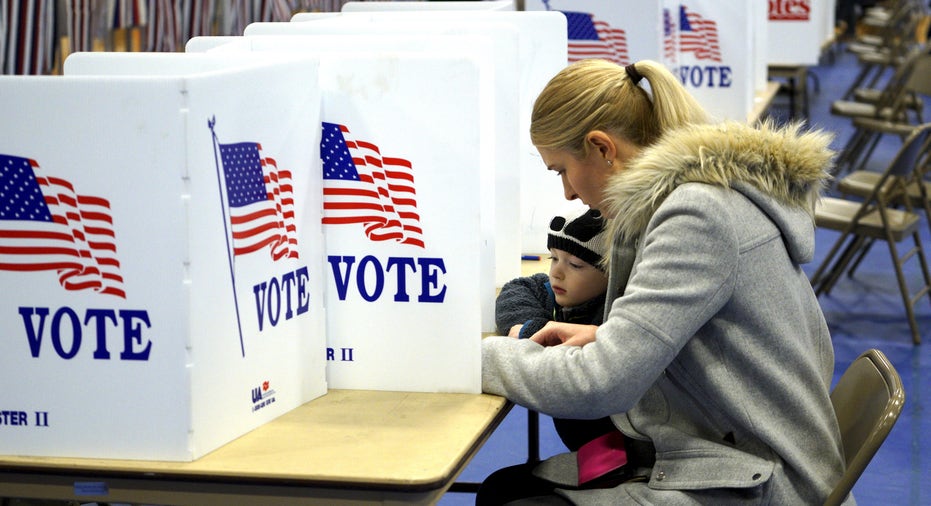What Role Will Women Play in the 2016 Race?

The countdown is on to Election Day 2016 with 258 days remaining on the calendar in the presidential race. One group of voters expected to make a big impact at the ballot box are women. Historically since 1980, females have outnumbered and outvoted their male counterparts in every presidential election cutting across race, ethnic and generational groups.
In the 2008 and 2012 presidential elections, women voters made up 53% of the electorate compared to 47% of men.
“Women voters like all voters are much more influenced by party ideology and policy than identity. When they cast their ballot it is when they believe identity informs policy priorities and perspective,” said Kelly Dittmar, a political scholar at Rutgers University’s Center for American Women and Politics.
For decades, the Center for American Women and Politics has been tracking women’s voting behaviors, particularly weighing the differences between men and women in voter turnout, choice and party preferences. This election cycle, the Center for American Women and Politics joined forces with the Barbara Lee Family Foundation to create Presidential Gender Watch 2016. The bi-partisan project has been following and analyzing gender dynamics in the 2016 presidential race while exploring how gender impacts candidate strategy, voter engagement, media and electoral results.
Republican women voters have been in focus with the unconventional GOP primary race this year. Christine Matthews, who tracks Republican women voting patterns at Bellwether Research and Consulting, says GOP frontrunner Donald Trump has changed the political landscape as an outsider which has resonated more with men than women in some aspects.
“Donald Trump does have more support among Republican men. If you look at polling he may average six to eight points higher with men than women. He did better among men in New Hampshire by five and better among men in South Carolina by seven, but the fact of the matter is he still won among women,” said Mathews.
In a recent Fox News Poll, 32% of Republican women primary voters supported Trump compared to GOP rivals Texas Senator Ted Cruz, who garnered 19% and Florida Senator Marco Rubio with 18%.
“If you look at Donald Trump within the context of all women, of course he is by far the most polarizing as a Republican candidate; His image is 34% favorable and 60% unfavorable among all women,” said Mathews.
She says Republican women voters’ number one issue is terrorism and security, which is why Trump’s strong stances on immigration and banning Muslims from entering the U.S. speaks to them.
“Republican women are very unnerved in this current environment with worries about terrorism at home and internationally and it makes the case for someone who is very tough, whose rhetoric is sort of the mama bear that comes out. Regardless, if I disagree with this person my priority is safety. In your basic needs Donald Trump really steps into that role,” said Mathews.
Women in minority groups also play a significant role in the electorate. Dr. Anna Sampaio, associate professor of ethnic studies & political science at Santa Clara University, specializes in race and immigrant politics. She says female Latino voters are poised to turn out in great numbers this year, much like they did in the 2008 and 2012 elections, due to increased rates from naturalization and voter registration.
“We have already seen a lot of enthusiasm and engagement in this race in large part because of the centrality of immigration in this election and the resurgence of demonizing language targeting Latinos from Republicans as well as the detailed policy reform from Democratic candidates,” said Dr. Sampaio.
She says immigration is the most important policy issue to Latino women, with an estimated 80% of the Latino population coming from mixed status families of undocumented and natural born citizens.
When it comes to the African American women’s vote, no other group showed up in record numbers like in the 2008 and 2012 elections, exceeding all other race and gender subgroups.
“Black women are the backbone of the Democratic party and most reliable voter. Black women have registered and voted at a much higher number than their black male counterparts in every election since 1998,” said Glynda Carr, co-founder of Higher Heights Leadership Fund.
She says black women are a key voting block and cannot be taken for granted, “for Democratic black women are a key component for winning the White House.”
In 2012, more than 70% of eligible black women reported voting, 90% of which voted for President Obama. His historic victory is credited to their participation.
Carr says this time around the presidential contest has a different dynamic with Bernie Sanders in a position to introduce himself to black women and Hillary Clinton, with high recognition, must rebuild relationships with black women from the 2008 election.
“Two thousand and sixteen provides a political backdrop to truly harness black women’s political power by turning a vote and tying those votes to policy demands and political purpose to truly ensure their views will be heard, “ said Carr.



















